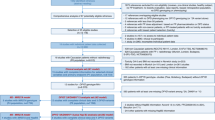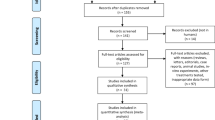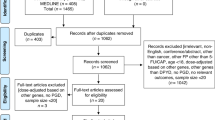Abstract
Methotrexate (MTX), one of the important pillars in the treatment of different forms of cancer, is associated with the development of hepatotoxicity. The 677C>T variant (rs1801133) in the methylenetetrahydrofolate reductase (MTHFR) gene might affect the development of hepatotoxicity. Results in literature are, however, contradictive. The aim of this study was to evaluate the role of the MTHFR 677C>T polymorphism in MTX-induced hepatotoxicity by analyzing a Dutch cohort of pediatric patients treated with high doses of MTX and subsequently performing a meta-analysis. Ninety-eight patients receiving 542 courses of high-dose MTX were genotyped for the MTHFR 677C>T variant. Hepatotoxicity was evaluated retrospectively according to common terminology criteria for adverse events–National Cancer Institute criteria. The influence of MTHFR 677C>T on hepatotoxicity was examined using a generalized estimating equation (GEE) analysis. A fixed-effect meta-analysis based on this and previous studies investigating the association between the MTHFR 677C>T polymorphism and uniformly coded hepatotoxicity was performed. The GEE analysis showed an increased risk of developing hepatotoxicity for T versus C allele (odds ratio (OR) 1.8; 95% confidence interval (CI) 1.0–3.2, P=0.04). This finding was not supported by the meta-analysis including seven studies and 1044 patients; the OR for the 677T versus C allele was 1.1 (95% CI 0.84–1.5, P=0.25). Heterogeneity between studies was observed, possibly related to differences in MTX dose and leucovorin rescue. In conclusion, in patients with cancer, the MTHFR 677T allele has only a minor role in the development of MTX-induced hepatotoxicity. Observed heterogeneity between studies warrants further study into (tailored) leucovorin rescue.
This is a preview of subscription content, access via your institution
Access options
Subscribe to this journal
Receive 6 print issues and online access
$259.00 per year
only $43.17 per issue
Buy this article
- Purchase on Springer Link
- Instant access to full article PDF
Prices may be subject to local taxes which are calculated during checkout


Similar content being viewed by others
References
Reuben A . Methotrexate controversies. In: Kaplowitz N, DeLeve LD, (eds). Drug-Induced Liver Disease 2nd edn. Informa Healthcare USA: New York, pp 683–705 2007.
Kishi S, Cheng C, French D, Pei D, Das S, Cook EH et al. Ancestry and pharmacogenetics of antileukemic drug toxicity. Blood 2007; 109: 4151–4157.
Trevino LR, Shimasaki N, Yang W, Panetta JC, Cheng C, Pei D et al. Germline genetic variation in an organic anion transporter polypeptide associated with methotrexate pharmacokinetics and clinical effects. J Clin Oncol 2009; 27: 5972–5978.
Patino-Garcia A, Zalacain M, Marrodan L, San-Julián M, Sierrasesúmaga L . Methotrexate in pediatric osteosarcoma: response and toxicity in relation to genetic polymorphisms and dihydrofolate reductase and reduced folate carrier 1 expression. J Pediatr 2009; 154: 688–693.
Yang JJ, Cheng C, Yang W, Pei D, Cao X, Fan Y et al. Genome-wide interrogation of germline genetic variation associated with treatment response in childhood acute lymphoblastic leukemia. JAMA 2009; 301: 393–403.
Frost P, Blom HJ, Milos R, Goyette P, Sheppard CA, Matthews RG et al. A candidate genetic risk factor for vascular disease: a common mutation in MTHFR. Nat Genet 1995; 10: 111–113.
Chiusolo P, Reddiconto G, Farina G, Mannocci A, Fiorini A, Palladino M et al. MTHFR polymorphisms’influence on outcome and toxicity in acute lymphoblastic leucemia patients. Leuk Res 2007; 31: 1669–1674.
Shimasaki N, Mori T, Samejima H, Sato R, Shimada H, Yahagi N et al. Effects of methylenetetrahydrofolate reductase and reduced folate carrier 1 polymorphisms on high-dose methotrexate-induced toxicities in children with acute lymphoblastic leukemia or lymphoma. J Pediatr Hematol Oncol 2006; 28: 64–68.
Aplenc R, Thompson J, Han P, La M, Zhao H, Lange B et al. Methylenetetrahydrofolate reductase polymorphisms and therapy response in pediatric acute lymphoblastic leukemia. Cancer Res 2005; 65: 2482–2487.
Seidemann K, Book M, Zimmermann M, Meyer U, Welte K, Stanulla M et al. MTHFR 677 (C-T) polymorphism is not relevant for prognosis or therapy-associated toxicity in pediatric NHL: results from 484 patients of multicenter trial NHL-BFM 95. Ann Hematol 2006; 85: 291–300.
Imanishi H, Okamura N, Yagi M, Noro Y, Moriya Y, Nakamura T et al. genetic polymorphisms associated with adverse events and elimination of methotrexate in childhood acute lymphoblastic leukemia and malignant lymphoma. J Hum Genet 2007; 52: 166–171.
Whelan J, Seddon B, Perisoglou M . Management of osteosarcoma. Curr Treat Options Oncol 2006; 7: 444–455.
Kamps WA, van der Pal-de Bruin KM, Veerman AJ, Fiocco M, Bierings M, Pieters R . Long-term results of Dutch Childhood Oncology Group studies for children with acute lymphoblastic leukemia from 1984 to 2004. Leukemia 2010; 24: 309–319.
Common toxicity criteria version 3.0 (National Cancer Institute Web site). Available at http://ctep.info.nih.gov/reporting/CTC-3.html.
De Mattia E, Toffoli G . C677T and A1298C MTHFR polymorphisms, a challenge for antifolate and fluoropyrimidine-based therapy personalization. Eur J Cancer 2009; 45: 1333–1351.
Gemmati D, Ongaro A, Tognazzo S, Catozzi L, Federici F, Mauro E et al. Methylenetetrahydrofolate reductase C677T and A1298C gene variants in adult non-Hodgkin’s lymphoma patients: association with toxicity and survival. Haematologica 2007; 92: 478–485.
Ongaro A, De Mattei M, Della Porta MG, Rigolin G, Ambrosio C, Di Raimondo F et al. Gene polymorphisms in folate metabolizing enzymes in adult acute lymphoblastic leukemia: effects on methotrexate-related toxicity and survival. Haematologica 2009; 94: 1391–1398.
Costea I, Moghrabi A, Laverdier C, Graziani A, Krajinovic M . Folate cycle gene variants and chemotherapy toxicity in pediatric patients with acute lymphoblastic leukemia. Haematologica 2006; 91: 1113–1116.
Guttormsen AB, Schneede J, Ueland PM, Refsum H . Kinetics of total plasma homocysteine in subjects with hyperhomocysteinemia due to folate or cobalamin deficiency. Am J Clin Nutr 1996; 63: 194–202.
Chiusolo P, Giammarco S, Bellesi S, Metafuni E, Piccirillo N, De Ritis D et al. The role of MTHFR and RFC1 polymorphisms on toxicity and outcome of adult patients with hematological malignancies treated with high-dose methotrexate followed by leucovorin rescue. Cancer Chemother Pharmacol 2012; 69: 691–696.
Bagley PJ, Selhub J . A common mutation in the methylenetetrahydrofolate reductase gene is associated with an accumulation of formylated tetrahydrofolates in red blood cells. Proc Natl Acad Sci USA 1998; 95: 13217–13220.
Brattstrom L, Wilcken DE, Ohrvik J, Brudin L . Common methylenetetrahydrofolate reductase gene mutation leads to hyperhomocysteinemia but not to vascular disease: the result of a meta-analysis. Circulation 1998; 98: 2520–2526.
Shi Q, Zhang Z, Li G, Pillow PC, Hernandez LM, Spitz MR et al. Sex differences in risk of lung cancer associated with methylene-tetrahydrofolate reductase polymorphisms. Cancer Epidemiol Biomarkers Prev 2005; 14: 1477–1484.
Liu A, Menon S, Colson NJ, Quinlan S, Cox H, Peterson M et al. Analysis of the MTHFR C677T variant with migraine phenotypes. BMC Res Notes 2010; 3: 213.
Shimasaki N, Mori T, Torii C, Sato R, Shimada H, Tanigawara Y et al. Influence of MTHFR and RFC1 polymorphisms on toxicities during maintenance chemotherapy for childhood acute lymphoblastic leukemia or lymphoma. J Pediatr Hematol Oncol 2008; 30: 347–532.
Acknowledgements
This project was supported by a grant from the Foundation KiKa, Amstelveen, The Netherlands.
Author information
Authors and Affiliations
Corresponding author
Ethics declarations
Competing interests
The authors declare no conflict of interest.
PowerPoint slides
Rights and permissions
About this article
Cite this article
Hagleitner, M., Coenen, M., Aplenc, R. et al. The role of the MTHFR 677C>T polymorphism in methotrexate-induced liver toxicity: a meta-analysis in patients with cancer. Pharmacogenomics J 14, 115–119 (2014). https://doi.org/10.1038/tpj.2013.19
Received:
Revised:
Accepted:
Published:
Issue Date:
DOI: https://doi.org/10.1038/tpj.2013.19
Keywords
This article is cited by
-
Associations between the C677T and A1298C polymorphisms of MTHFR and the toxicity of methotrexate in childhood malignancies: a meta-analysis
The Pharmacogenomics Journal (2018)
-
Pharmacogenetic Predictors of Treatment-Related Toxicity Among Children With Acute Lymphoblastic Leukemia
Current Hematologic Malignancy Reports (2017)
-
Methotrexate-induced toxicity pharmacogenetics: an umbrella review of systematic reviews and meta-analyses
Cancer Chemotherapy and Pharmacology (2016)



